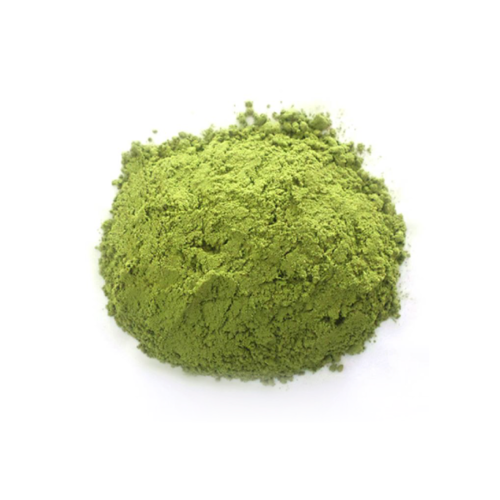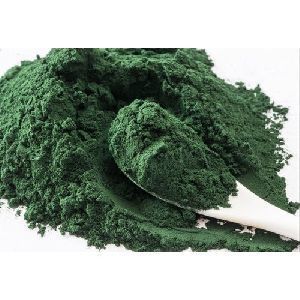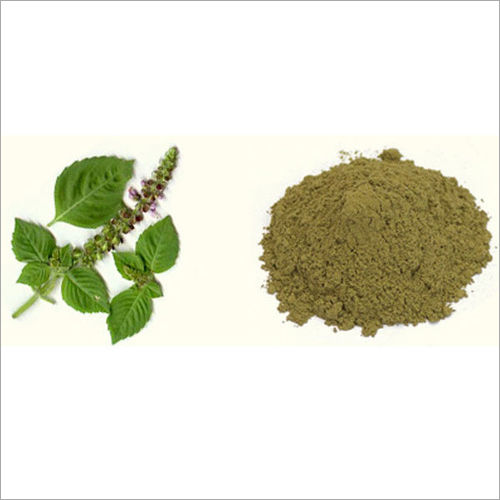- Home Page
- Company Profile
-
Our Products
- Natural Herb's Powders
- Hibiscus Flower
- Natural Henna Powder
- Dried Lavender Buds
- Amla Powder
- Haritaki Powder
- Guduchi Powder
- Safed Musli Powder
- Holy Basil Powder
- Shatavari Powder
- Hibiscus Powder
- Brahmi Powder
- Bhringaraj Powder
- Giloy Extract Powder
- Reetha Powder
- Natural Manjistha Root Powder
- Moringa Leaves Powder
- Lecorice Root Powder
- Stevia Powder
- Ashwagandha Powder
- Natural Licorice Powder
- Dried Tulsi Leaves Powder Ingredients
- Dried Tulsi Leaves Powder
- Naturals Brown Tulsi Powder
- Tulsi Leaves Powder
- Ayurvedic Giloy Powder
- Natural Guduchi Powder
- Giloy Powder
- Neem Giloy Powder
- Natural Bhumi Amla Powder
- Bhumi Amla Powder
- Ashoka Powder
- Arjuna Powder
- Gokharu Powder
- Gudmar Powder
- Gotukola Powder
- Natural Vetiver Root Powder
- Kalmegh Powder
- Natural Kalmegh Root Powder
- Natural Punarnava Powder
- Punarnava Powder
- Safed Musli Root Powder
- Pilalimool Powder
- Amba Haldi Powder
- Alfalfa Powder
- Wheat Grass Powder
- Babool Powder
- Bibhitaki Powder
- Natural Bibhitaki Powder
- Triphala Powder
- Manjistha Powder
- Kaunch Seed Powder
- Trifala Powder
- Herbal Vetiver Root Powder
- Natural Kaunch Seed Powder
- Butterfly Blue Pea Flower
- Dry Hibiscus Flower
- Dry Rose Petals
- Dried Flowers
- Botanical Extracts
- Dehydrated Vegetable Powders
- Natural & Essential Oils
- HERBS POWDER FOR COSMETIC
- Natural Amla Powder
- Licorice Powder
- Tulsi Powder
- Vetiver Root Powder
- Herbal Manjistha Powder
- Natural Reetha Powder
- Natural Brahmi Powder
- Jatamansi Powder
- Aloevera Powder
- Orange Peel Powder
- Pomengranate Peel Powder
- Rose Petal Powder
- Organic Hibiscus Powder
- Senna Leaves Powder
- Organic Natural Henna Powder
- Natural Indigo Powder
- VEGETABLES,FRUITS AND SPICE POWDERS
- TEA BAG INGREADIANTS (CUT & SHIFTED)
- NATURAL RAW HERBS
- Dried Lemongrass
- Dried Rosemary
- Dried Nettle Leaves
- Dried Green Tea Leaves
- Dried Thyme Leaves
- Dried Peppermint Leaves
- Dried Spearmint Leaves
- Dried Parsley Leaves
- Dried Basil Leaves
- Dried Moringa Leaves
- Dried Stevia Leaves
- Dried Fenugreek Leaves
- Dried Shatavari Root
- Dried Ashwagandha Root
- Dried Amla
- Soapnut HERBS
- HERBAL INGREDIENTS FOR HEALTHCARE PRODUCTS
- Haritaki Harad Herbal Powder
- Rubia Cordifolia Powder
- Dehydrated Mint Leaves Powder
- Withania Somnifera Powder
- Moringa Oleifera Leaves Powder
- Aloe Vera Powder
- Asparagus Racemosus Root Powder
- Terminalia Chebula Powder
- Glycyrrhiza Glabra Root Powder
- Stevia Sweetener Powder
- Stevia Leaves Powder
- Arjuna Bark Powder
- Mulethi Powder
- Ashwagandha Powder
- Natural Manjistha Powder
- Curry Leaves Powder
- Fenugreek Powder
- Amlaki Amla Powder
- Beet Root Powder
- Herbal Methi Powder
- Emblica Officinalis Powder
- Organic Spirulina Powder
- Noni Fruit Powder
- Bacopa Monnieri Powder
- Boswellia Serrata Gum
- Barley Grass Powder
- Bringaraja Herbal Powder Eclipta Prostrata
- HERBAL INGREDIENTS FOR COSMETIC PRODUCTS
- Lemon Peel Powder
- Ocimum Sanctum Powder
- Aloe Barbadensis Powder
- Mint Leaves Powder
- Licorice Root Powder
- Natural Indigo Powder Green
- Herbal Henna Powder
- Reetha Soapnut Herbal Powder
- Henna Powder
- Reetha Herbal Powder
- Shikakai Powder
- Herbal Brahmi Powder
- Pomegranate Peel Powder
- Aritha Powder
- Bhringraj Powder
- Neem Leaves Powder
- Ashwagandha Roots
- Multani Mitti Mud
- Organic Amla Powder
- Dried Leaves
- Dried Herbs
- Flower Tea
- Herbal Tea
- Dried Powder
- Dry Rose Petals
- Indian Ayurvedic Herbs
- Seeds
- Natural Herb's Powders
- Certificates
- Contact Us
Alfalfa Powder
120 INR/Kilograms
Product Details:
- Type Other
- Part Leaves
- Color green
- Shelf Life 24 Months
- Click to View more
X
Alfalfa Powder Price And Quantity
- 25 Kilograms
- 120 INR/Kilograms
Alfalfa Powder Product Specifications
- Other
- green
- Leaves
- 24 Months
Alfalfa Powder Trade Information
- mudra
- Cash Advance (CA), Cash in Advance (CID)
- 1000 Kilograms Per Day
- 1 Days
- Yes
- Free samples are available
- Australia, South America, Western Europe, Middle East, Central America, Asia, Eastern Europe, North America, Africa
- All India
Product Description
Alfalfa Powder
Alfalfa powder, made from the dried leaves of the Medicago sativa plant, is a highly nutritious superfood that has been used for centuries for its health benefits. Rich in vitamins, minerals, and antioxidants, alfalfa powder is popular in traditional and modern health practices, and it s often added to smoothies, teas, or used as a supplement. Here s a detailed look at the various uses and benefits of alfalfa powder:
1. Nutritional Benefits
Alfalfa powder is packed with essential nutrients, making it a potent addition to a healthy diet. Some of its key nutrients include:
- Vitamins: A rich source of Vitamin A, Vitamin C, Vitamin K, and several B-vitamins, especially Vitamin B6 and Folate.
- Minerals: It contains significant amounts of calcium, magnesium, iron, potassium, and zinc.
- Proteins and Amino Acids: Alfalfa is a source of plant-based protein and contains essential amino acids.
- Fiber: Alfalfa powder is high in dietary fiber, which aids in digestion and promotes gut health.
- Antioxidants: It contains flavonoids, polyphenols, and carotenoids, which help fight oxidative stress and inflammation in the body.
2. Health Benefits and Uses
Digestive Health
- Promotes Healthy Digestion: Alfalfa powder is rich in fiber, which helps promote regular bowel movements, relieve constipation, and support overall digestive health. It can also help with bloating and gas.
- Supports Healthy Gut Microflora: Alfalfa is believed to act as a prebiotic, helping to feed beneficial gut bacteria and support a balanced microbiome.
Detoxification and Cleansing
- Liver Detox: Alfalfa is traditionally used to support liver health and detoxification. It has mild diuretic properties, which can help flush toxins from the body, and it may also assist in cleansing the digestive tract.
- Purification of the Blood: Alfalfa is often considered a blood purifier due to its high chlorophyll content. Chlorophyll is thought to help cleanse the blood, remove impurities, and support overall detoxification.
Heart Health
- Cholesterol Management: Alfalfa powder may help lower cholesterol levels. It contains saponins, compounds that can reduce LDL ("bad" cholesterol) and promote heart health.
- Blood Pressure Regulation: Alfalfa has potassium and magnesium, two minerals that are known to help regulate blood pressure by balancing sodium levels and promoting proper cardiovascular function.
Bone and Joint Health
- Rich in Calcium and Magnesium: Alfalfa is an excellent plant source of calcium, which is crucial for strong bones and teeth. The magnesium in alfalfa also supports bone health by aiding calcium absorption and helping to prevent bone density loss.
- Supports Joint Health: Some research suggests that alfalfa may help alleviate symptoms of arthritis and joint pain due to its anti-inflammatory properties. Its rich antioxidant content may help reduce inflammation in the joints.
Immune Support
- Rich in Antioxidants: Alfalfa contains a variety of antioxidants that can help protect cells from oxidative damage. Regular intake may strengthen the immune system, support healthy aging, and reduce the risk of chronic diseases.
- Anti-inflammatory Effects: Alfalfa has anti-inflammatory properties that can help modulate the immune system and reduce chronic inflammation. This makes it beneficial for conditions like arthritis, asthma, and skin irritations.
Blood Sugar Regulation
- Helps Manage Blood Sugar Levels: Alfalfa powder may help stabilize blood sugar levels, making it beneficial for people with diabetes or those trying to maintain healthy blood sugar levels. It is believed that alfalfa s fiber content helps slow the absorption of sugars in the bloodstream, preventing spikes in blood sugar.
Hormonal Balance and Women s Health
- Supports Hormonal Balance: Alfalfa is sometimes used in herbal medicine to support hormonal balance in women. It contains phytoestrogens, which are plant compounds that can mimic estrogen in the body. This may be helpful for managing symptoms of menopause, premenstrual syndrome (PMS), or other hormonal fluctuations.
- Promotes Lactation: Alfalfa has been traditionally used to help increase breast milk production in nursing mothers due to its nutrient content and phytoestrogens.
3. Uses in Skincare
Anti-aging and Skin Health
- Rich in Antioxidants: The antioxidants in alfalfa powder can help protect the skin from environmental damage caused by free radicals, which contribute to premature aging and the formation of wrinkles.
- Soothes Skin Irritations: Alfalfas anti-inflammatory and antioxidant properties make it a great ingredient in skincare for soothing skin conditions like acne, eczema, or psoriasis. It may help reduce redness, irritation, and inflammation.
Anti-acne Treatment
- Reduces Acne and Breakouts: Due to its anti-inflammatory properties, alfalfa powder may help calm the skin, reduce acne flare-ups, and promote clearer skin. It may also help balance oil production, making it beneficial for oily or acne-prone skin.
Facial Masks and Scrubs
- Brightening Face Mask: Alfalfa powder can be mixed with honey, yogurt, or aloe vera to create a rejuvenating face mask. The mask can help brighten the skin, soothe irritation, and provide a natural glow.
- Exfoliation: Alfalfa powder can also be used as a gentle exfoliant in face scrubs. Mix it with a small amount of water or oil to create a paste that helps remove dead skin cells and promote smoother, more radiant skin.
4. Culinary Uses
Smoothies and Shakes
- Nutrient Boost: Alfalfa powder can be easily added to smoothies, shakes, and juices. It provides a concentrated dose of vitamins, minerals, and protein without altering the flavor significantly. A tablespoon of alfalfa powder in your daily smoothie can support overall health, energy levels, and digestion.
In Baking and Cooking
- As a Flour or Supplement: Alfalfa powder can be used in baking to fortify bread, muffins, pancakes, or other baked goods with extra nutrients. You can substitute part of the flour in your recipes with alfalfa powder for added vitamins and minerals.
- In Salads or Soups: Sprinkle alfalfa powder on salads, soups, or other savory dishes as a garnish or supplement. It adds nutrients without overwhelming the flavor.
Herbal Teas and Infusions
- Herbal Tea Blends: Alfalfa powder can be added to herbal tea blends for an extra nutritional boost. It pairs well with herbs like peppermint, ginger, or chamomile. When brewed, it can support digestion and detoxification.
5. How to Use Alfalfa Powder
- In Smoothies: Add 1-2 teaspoons of alfalfa powder to your daily smoothie for an easy nutrient boost.
- As a Supplement: Alfalfa powder can be taken as a supplement, typically 1-2 teaspoons per day, added to water, juice, or tea.
- Facial Mask: Mix alfalfa powder with honey, yogurt, or aloe vera gel to create a calming face mask. Apply to your face, leave on for 10-15 minutes, and rinse with warm water.
- In Cooking: Add alfalfa powder to baked goods, soups, salads, or sauces for an added nutritional boost.
- Herbal Tea: Steep alfalfa powder with other herbs in hot water to make a nutrient-rich tea.
6. Precautions and Considerations
- Possible Interactions with Medications: Alfalfa may interact with certain medications, including anticoagulants (blood thinners) and immunosuppressants, so consult a healthcare professional if you re on any medications.
- Pregnancy and Breastfeeding: While alfalfa is generally considered safe for most people, it s important to consult a healthcare provider before using it during pregnancy or while breastfeeding, particularly if you plan to take it in large amounts.
- Allergies: Alfalfa is a member of the legume family, so if you have allergies to legumes, you should exercise caution when using alfalfa powder.
Tell us about your requirement

Price:
Quantity
Select Unit
- 50
- 100
- 200
- 250
- 500
- 1000+
Additional detail
Mobile number
Email
Other Products in 'Natural Herb's Powders' category
 |
ALL HERBSCARE
All Rights Reserved.(Terms of Use) Developed and Managed by Infocom Network Private Limited. |








